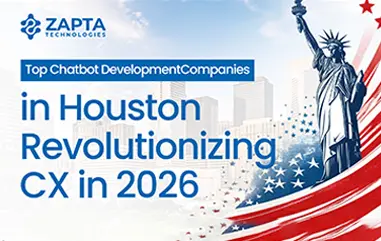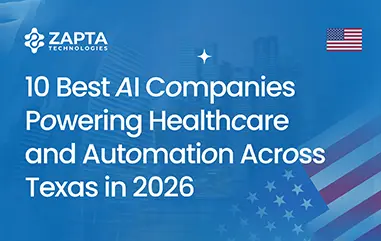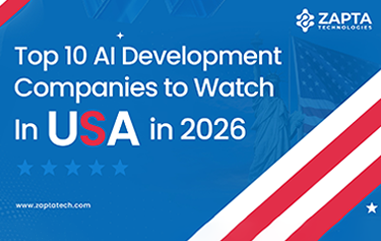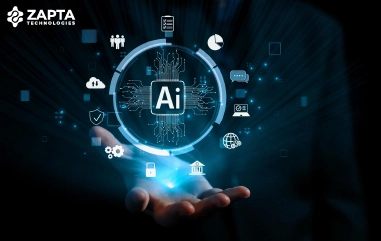When COVID-19 hit and the world shut down, tech didn’t slow down; it sped up, especially in healthcare.
With in-person visits reduced, telemedicine has grown, and online consultations have become common. AI chatbots were introduced to answer patients’ basic questions.
Still, the bigger issues didn’t go away. Staff shortages, heavy admin work, and long wait times only added to the frustration for both healthcare teams and patients.
How can AI chatbots help reduce healthcare administration costs?
In reality, AI chatbots came as a smart solution. They handle the repetitive tasks that weigh staff down, while letting professionals focus on emergencies and the patients who need them most.
In this article, we are breaking down how AI chatbots can help reduce healthcare administration costs. So, if you’re in the healthcare space and curious about bringing AI into your workflow, this one’s for you.
6 ways AI chatbots are reducing healthcare administration costs
Managing a healthcare ecosystem requires immense resources; you need real estate, doctors, nurses, administrative staff, tools, technology, and the list goes on..
That’s why bringing in technology such as an AI chatbot is necessary. It lightens your load and raises the quality of care. Let’s look at the top 6 ways AI chatbots can reduce your administration costs.
Patient triage with AI symptom checking
Patient triage means prioritizing patients based on the urgency of their condition. It makes sure that people with the most critical or time-sensitive needs are treated first, while those with less urgent symptoms can safely wait or be directed to appropriate care. Sounds like jargon, but it’s really just about making sure the right person gets help at the right time.
Manually doing this eats up hours of staff time. And honestly, that time could be better spent actually treating patients instead of sorting them. However, an AI chatbot integrated into your website or app can automate this step. Before a patient books an appointment, they simply need to check their symptoms through the chatbot, and the system automatically schedules the appointment based on urgency.
And if you’re wondering about accuracy, studies have shown that AI chatbots have achieved 82% accuracy on the first diagnosis. That’s a solid number. A simple solution saves the time and resources for your physician/nurse and reduces unnecessary appointments.
Scheduling and appointment management
Now, your patients have been booked as per their urgency. But, what if they booked the appointment and don’t show up? Maybe they forgot, or canceled late. Either way, it wastes hospital time, drains revenue, and leaves staff and resources underutilized, all while other patients wait longer.
AI chatbots can automate appointment scheduling and management by sending timely reminders, making rescheduling easy, and filling last-minute cancellations. The result? Fewer empty slots, higher efficiency, and better access to care.
Handling repetitive administrative tasks
Only half the work is done once appointments are managed; you still have to handle all the other administrative tasks. Patients (and their caregivers) are full of questions: billing processes, medication instructions, visiting hours, and much more.
Instead of answering the same queries again and again, you can gather the most-asked questions, define your billing processes and instructions, and build an AI chatbot around this data. The chatbot will handle in seconds what normally eats up hours of staff time.
Of course, you’ll still need support staff for issues that chatbots can’t manage. But now, they’ll be free from repetitive questions and able to focus on care that actually needs a human touch.
Patient education and preventive care
Healthcare doesn’t end when a patient walks out of the hospital. They still need guidance, such as how to take their medication, when to get their next vaccine, or even simple lifestyle advice. The truth is, staff don’t always have the time to answer every single question. An AI chatbot shares consistent, easy-to-understand health information around the clock, be it reminders for flu shots, checkup alerts, or tips on managing chronic conditions day to day.
This way, your patients feel supported even after their visit, preventive care becomes part of their routine, and hospitals save on the heavy costs that come from unmanaged illnesses later on.
Mental health and self-care support
Access to mental health support is limited, therapists are often overbooked, and not everyone can afford regular sessions. A chatbot that’s carefully administered by healthcare professionals can give people a safe space to check in, track moods, and practice coping strategies. We’re not talking about a theory here; randomized controlled trials (RCTs) have shown that chatbots can help reduce anxiety and depression scores.
Through this, people can get everyday support when they need it, therapists aren’t overwhelmed with minor cases, and the demand for costly emergency interventions goes down.
Insurance and billing queries
If there’s one area that confuses almost every patient, it’s insurance and billing. Which services are covered? What’s the co-pay? How do refunds or claims work? For staff, answering these questions over and over is exhausting, and for patients, unclear billing can be stressful.
You can train an AI chatbot on your hospital’s billing policies and insurance FAQs, so patients get instant, consistent answers about coverage, payments, and processes. They can even guide patients step by step through claim submissions or payment options. You end up with less frustrated patients, less workload for staff, and smoother financial operations for the hospital.
When it comes to healthcare automation, the big question is: should you build one chatbot for everything or separate ones for different tasks? The smarter way is often a hybrid approach, one core chatbot that patients interact with, supported by specialized modules for things like triage, billing, or mental health. This way, you keep the experience consistent while ensuring accuracy where it matters most.
That’s where ZAPTA AI, a US-based AI technology partner, comes in. With expertise in AI, machine learning, and custom chatbot development, ZAPTA Technologies can help you design a solution that’s scalable, safe, and tailored to your healthcare ecosystem, whether that means a single intelligent assistant or a modular setup that grows with your needs.

















